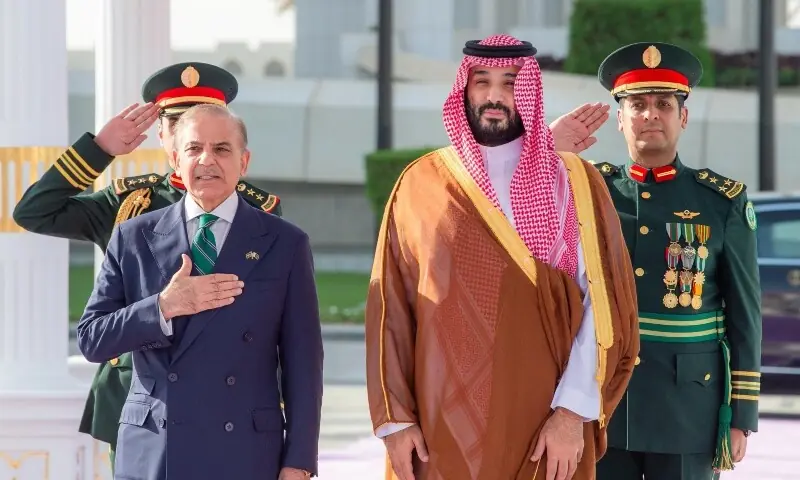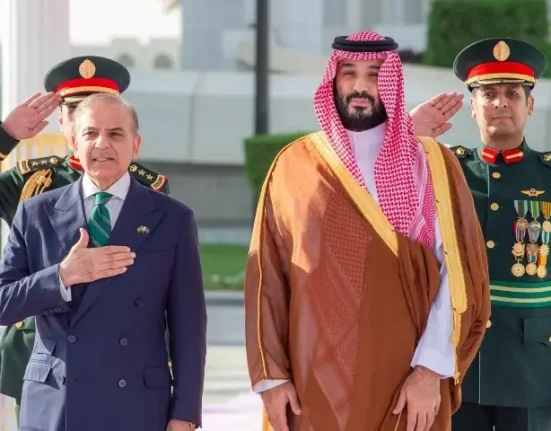In a significant diplomatic and military development, the Kingdom of Saudi Arabia and the Islamic Republic of Pakistan have signed a landmark Joint Strategic Defense Agreement, reaffirming their commitment to deeper security cooperation and mutual defence. The pact was formalised during high-level bilateral discussions between Saudi Crown Prince and Prime Minister, His Royal Highness Mohammed Bin Salman, and Pakistan’s Prime Minister, Muhammad Shehbaz Sharif.
The agreement, signed under the auspices of long-standing brotherly ties between the two nations, outlines that any armed external aggression against one of the countries shall be considered a direct attack on the other. This clause effectively establishes a mutual defence mechanism, binding both nations to stand in solidarity and respond collectively to threats against their territorial integrity and national security.
Both leaders described the accord as a strategic step forward in strengthening regional stability and deepening military collaboration. According to sources familiar with the negotiations, the agreement also paves the way for broader cooperation in areas such as joint military training, intelligence sharing, arms development, and counter-terrorism efforts.
Prime Minister Shehbaz Sharif, in his remarks following the signing, expressed deep appreciation to the Saudi leadership for their unwavering support to Pakistan in times of economic and geopolitical difficulty. He noted that the agreement not only strengthens bilateral relations but also sends a strong message to adversaries that the defence of either country is now a shared priority.
Crown Prince Mohammed Bin Salman, on his part, reaffirmed the Kingdom’s enduring commitment to Pakistan’s sovereignty and stability. He stressed that the two countries share a history of mutual trust, economic partnership, and shared Islamic values, which now form the foundation of an expanded security alliance.
Analysts view the pact as a notable shift in regional power dynamics, particularly in light of growing tensions in the Middle East and South Asia. The agreement also signals Riyadh’s willingness to take on a more assertive role in defending its allies beyond traditional diplomatic gestures.
The newly signed Joint Strategic Defense Agreement is expected to be followed by a series of technical meetings and military-to-military coordination frameworks, ensuring its smooth implementation in the months ahead. Officials from both governments have expressed optimism that this alliance will serve as a deterrent to hostile elements while deepening bilateral cooperation across all fronts.

